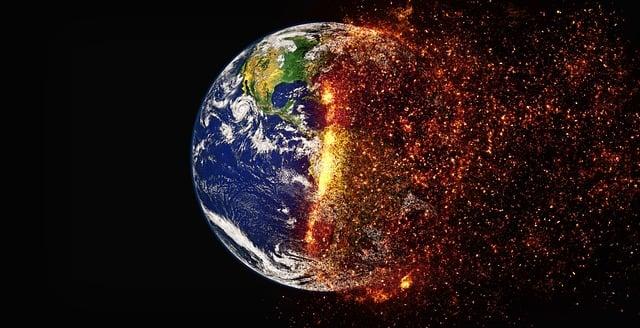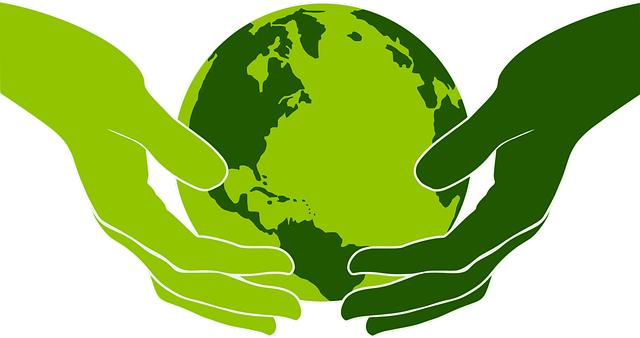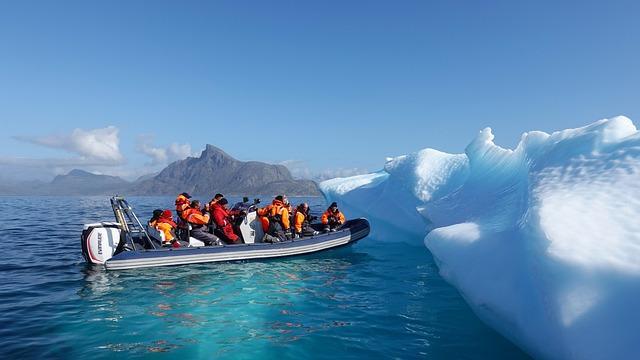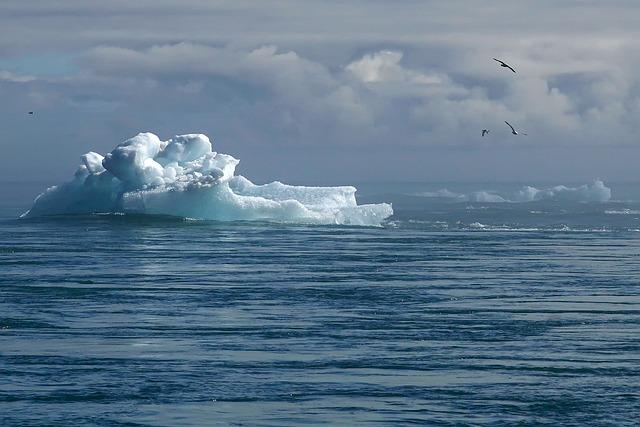- Introduction
- Causes of Rising Global Temperatures
- Effects on the Environment
- Impact on Human Societies
- Solutions and Mitigation Measures
- Conclusion
- FAQs
- References
Introduction
Rising global temperatures are one of the most pressing challenges of our time. The persistent increase in Earth's average temperature is driven by human activities, particularly greenhouse gas emissions, deforestation, and industrial processes.
This blog will explore the key topics surrounding this critical issue: the causes behind rising temperatures, their effects on the environment, the impact on human societies, and potential solutions we can adopt. Understanding these facets will help us take meaningful steps toward mitigating this global crisis.
Causes of Rising Global Temperatures

(Image: Pixabay/@TheDigitalArtist)
The steady increase in global temperatures stems primarily from anthropogenic (human-caused) actions. Greenhouse gases, such as carbon dioxide (CO2), methane (CH4), and nitrous oxide (N2O), trap heat in the atmosphere and create a "greenhouse effect." The burning of fossil fuels (coal, oil, and gas) for energy is the leading source of these emissions.
Deforestation amplifies the problem by reducing the number of trees that absorb CO2. Industries release large amounts of pollutants into the air, while agricultural practices contribute methane through livestock and rice cultivation. Transportation further exacerbates the release of CO2 as vehicles burn gasoline and diesel every day.
Naturally occurring factors, such as volcanic eruptions or variations in solar radiation, play a minor role in comparison to human-driven influences, which have accelerated significantly in the last century.
Effects on the Environment

(Image: Pixabay/@Camera-man)
Rising global temperatures have profound effects on Earth's ecosystems. One of the most visible impacts is the melting of polar ice caps and glaciers, which contributes to rising sea levels and threatens coastal communities. Warmer oceans also lead to bleaching of coral reefs and disrupt marine life ecosystems.
Changes in weather patterns, including more frequent and severe storms, droughts, and heatwaves, are becoming commonplace. These weather extremes not only affect biodiversity but also disturb agricultural yields, putting food security at risk worldwide.
Ecosystems such as forests and wetlands are experiencing shifts in species distribution. Some species are unable to adapt, leading to loss of biodiversity and disruption of ecological balance.
Impact on Human Societies

(Image: Pixabay/@dassel)
The consequences of rising temperatures extend beyond the natural world and directly affect humanity. Health issues are skyrocketing due to heatwaves, vector-borne diseases, and air pollution. Vulnerable populations, particularly children and the elderly, face higher risks of heat-related illnesses and mortalities.
Economic impacts are equally concerning. Extreme weather events destroy infrastructure, displace communities, and strain public resources. The agricultural sector is struggling with unpredictable climates, leading to reduced crop yields and increased food prices, especially in low-income countries.
Furthermore, global inequalities are exacerbated, as poorer regions often lack the financial means to adapt to these challenges, leaving millions of people in precarious situations.
Solutions and Mitigation Measures

(Image: Pixabay/@makabera)
Tackling the root causes of rising temperatures requires proactive measures at individual, national, and international levels. Transitioning to renewable energy sources like solar, wind, and hydroelectric power can significantly reduce carbon emissions. Energy efficiency in homes and industries further plays a critical role in lowering overall energy consumption.
Reforestation and afforestation efforts can enhance nature's capacity to offset carbon emissions. Sustainable farming practices, waste management improvements, and reducing reliance on single-use plastics can also make a meaningful difference.
Policy changes, such as the implementation of carbon tax schemes and adherence to international treaties like the Paris Agreement, foster global accountability. Public awareness campaigns can educate individuals about how even small changes, like reducing meat consumption and increasing recycling, contribute to a healthier planet.
Conclusion
The rising global temperatures pose an undeniable threat to all life forms on Earth. However, understanding the causes, consequences, and solutions can pave the way forward. By addressing this issue collectively and urgently, we still have a chance to mitigate the damage and secure a sustainable future for ourselves and the generations to come.
Every action counts, whether it's reducing your carbon footprint or advocating for governmental policies. Together, we can combat the effects of climate change and work toward a healthier planet.
FAQs
What is causing global temperatures to rise?
Global temperatures are rising due to the greenhouse effect, primarily caused by human activities such as burning fossil fuels, deforestation, and industrial processes.
How does rising temperature affect ecosystems?
It leads to melting ice caps, rising sea levels, extreme weather patterns, and disruption of ecosystems and biodiversity.
Can we reverse the trend of rising temperatures?
While we cannot wholly reverse the damage already done, mitigation and adaptation strategies, like transitioning to renewable energy and reforestation, can slow down and minimize further impacts.
What role do governments play in mitigating climate change?
Governments implement policies such as carbon taxation, renewable energy incentives, and global treaties like the Paris Agreement to address and mitigate climate change.

